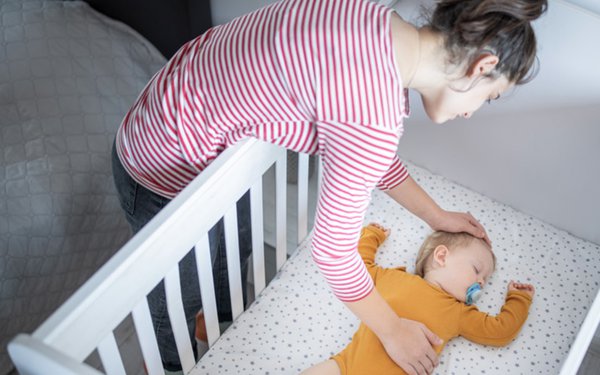
Safe to Sleep, a 30-year campaign to prevent
babies from dying in their sleep, is in jeopardy of ending due to the Trump administration’s federal workforce cuts.
"The elimination of the National Institutes of
Health’s role in the program, which helped slash infant deaths in the 2000s, comes at a time when sleep-related deaths among infants have increased,” notes STAT and the Medill News Service, which first broke the news.
The communication office within the National Institutes of Health that led the Safe to Sleep campaign was shut down on April 1, two former NIH officials and two program partners told The
Washington Post.
“The gutting of the office occurs at a time when doctors view Safe to Sleep as particularly urgent: The number of babies dying of sudden
infant death syndrome (SIDS) or other unexpected causes in sleep is on a significant rise for the first time in years, an increase that began during the coronavirus
pandemic,” according to The Washington Post.
advertisement
advertisement
Researchers believe the rise may be
related to parents not getting the information on safe sleep they needed during the pandemic, when access to health care might have been more limited.
“Recent research shows
that sleep-related infant deaths increased by 12% between 2020 and 2022, and that a significant number of babies are still being placed in unsafe sleep positions,” according to The Bump. “Amid rising misinformation and increasingly fragmented parenting communities, these numbers highlight a
clear need for more accessible, up-to-date guidance. But instead of strengthening those efforts, one of the most trusted national safe sleep programs—Safe to Sleep—has just lost its
federal support.”
The federal government launched the campaign as "Back to Sleep" in 1994 in partnership with private organizations.
“Since then, it
has helped save thousands of babies from dying in their sleep, says Dr. Rachel Moon, a pediatrician and researcher at the University of Virginia who helped write the American Academy of
Pediatrics' guidelines on safe infant sleep,” according to NPR.